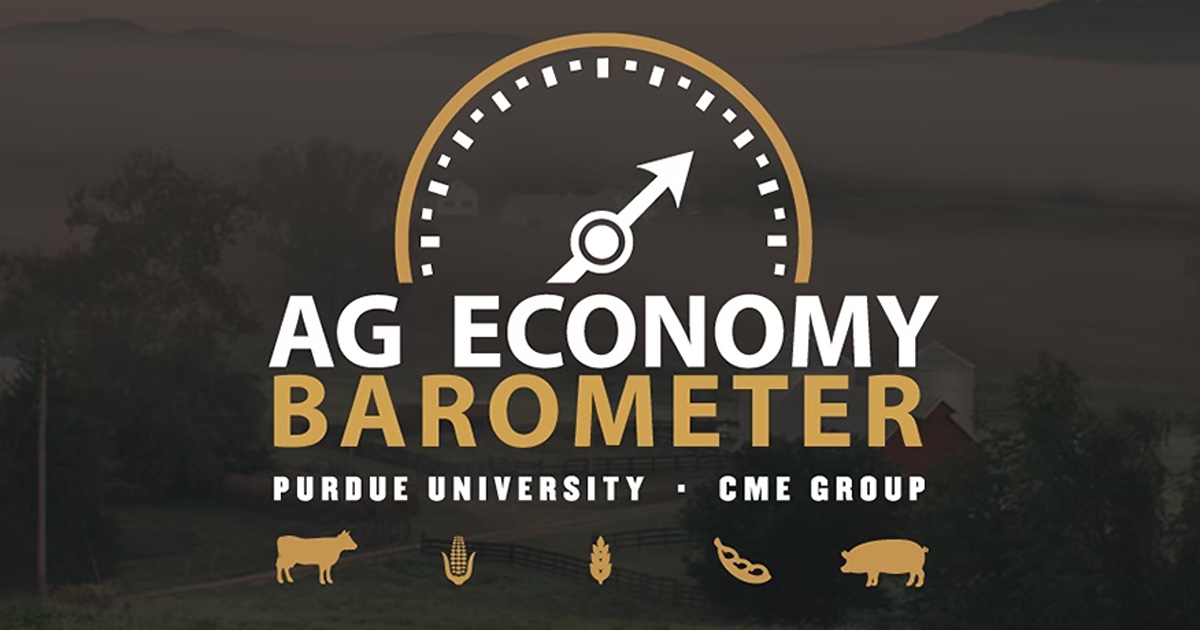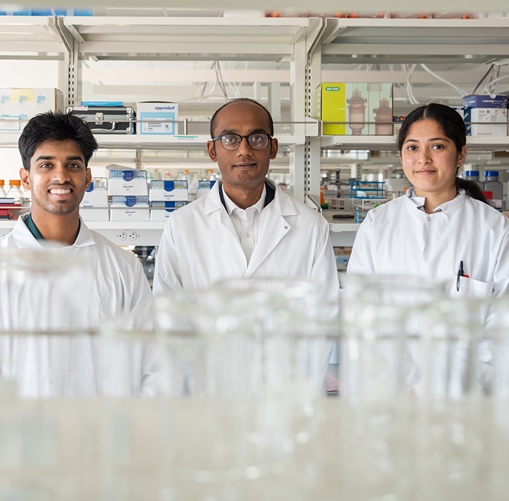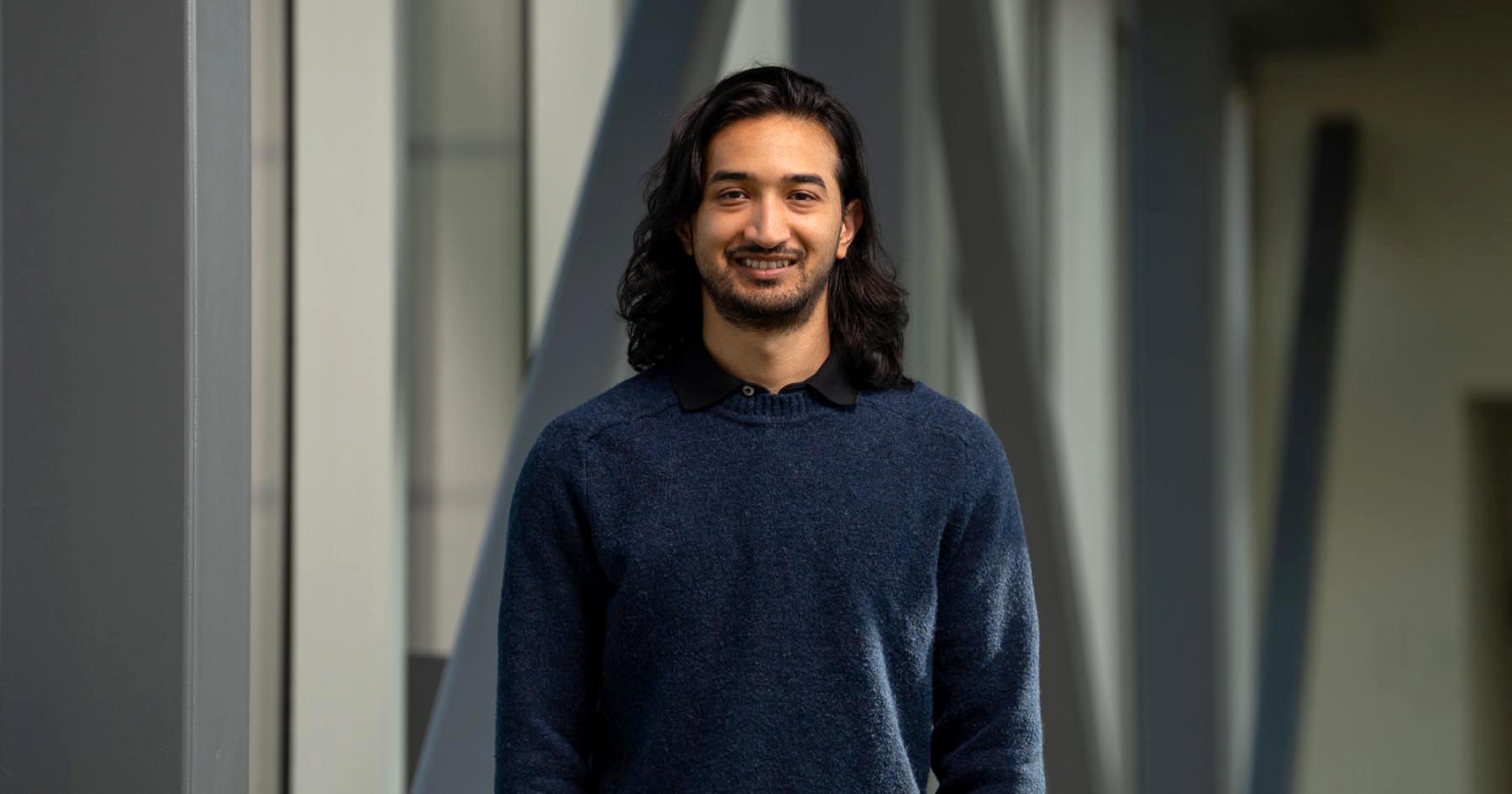Lynda Godwin Peter - Graduate Ag Research Spotlight
PFAS are a complex environmental issue. One soil core at a time, one water sample at a time, we can help put the pieces together to see the bigger picture.
- Lynda Godwin Peter, PhD student, Agronomy
The student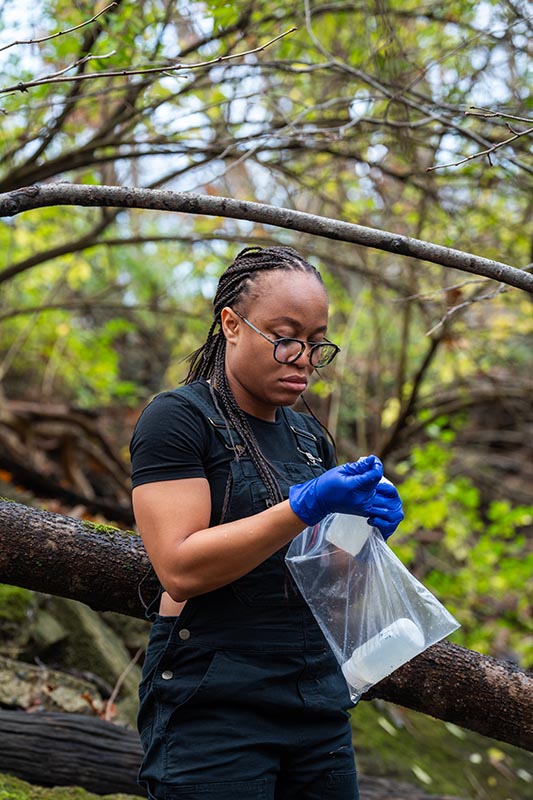
Growing up in Lagos, Nigeria, Lynda Godwin Peter helped her parents in the family garden, absorbing both her mother’s science background and her father’s love of the humanities. “My mom nudged me into the sciences,” she says. “It was not against my wishes because I really did love chemistry as much as I loved literature and the fine arts.” Peter earned an undergraduate degree in environmental science with a concentration in soil science at the University of Benin in Nigeria and entered the workforce while also planning to return to graduate school. “Nigeria has a lot of environmental issues, including drinking water contamination,” she says. “In college when I was learning about these things, I started gravitating towards doing research to improve water quality.” That led her to a master’s degree at Tennessee State University, where she focused on the environmental fate and transport of heavy metal contaminants and ecofriendly remediation strategies. As she explored options for doctoral study, she came across the work of Linda Lee, distinguished professor in the Department of Agronomy and head of Purdue’s Ecological Sciences & Engineering Interdisciplinary Graduate Program. “Dr. Lee is well known for her work on PFAS, a relatively novel family of contaminants that we in this field will be tackling for years to come,” Peter says. “I wanted to be right there at the scene.” She contacted Lee and found a good fit academically and personally. “It's not easy to get a combination of a good school and good lab,” she says. “A PhD is hard, but working in this environment with an advisor that cares makes things easier.” Peter arrived at Purdue in fall 2020.
The research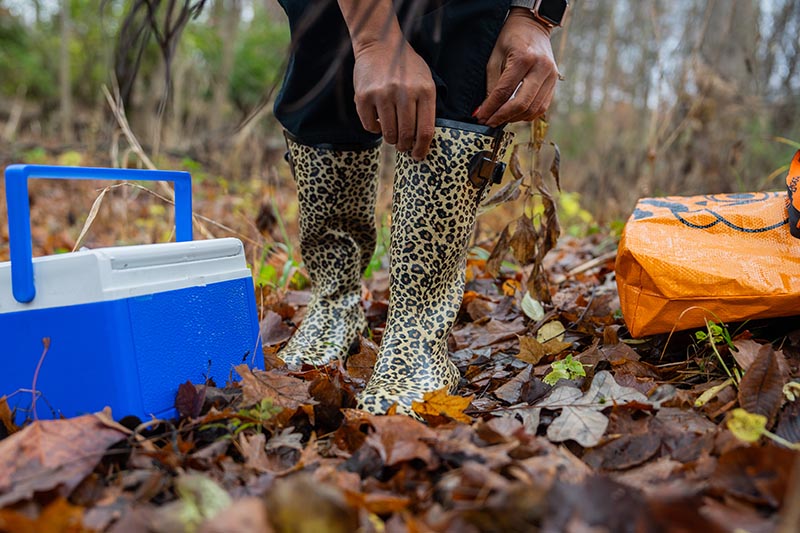
“I am working towards improving how we understand a family of thousands of compounds known as PFAS (per- and polyfluoroalkyl substances) — how they behave in the environment, especially in soil, and if it’s possible that their behavior influences their presence in drinking water or surface water,” Peter says. This is important, she adds, because these “forever chemicals” do not degrade in the environment except to other PFAS and have adverse health effects on humans and wildlife. Combining field and lab work, Peter studies the movement of PFAS from biosolids, the nutrient-rich residue of wastewater treatment that farmers and gardeners apply as organic fertilizers. She also employs modeling to help quantify long-term risk. She cites as one of the lab’s strengths its instrumentation for environmental analysis, which allows her to measure PFAS at parts per trillion, a potentially toxic amount.
Opportunities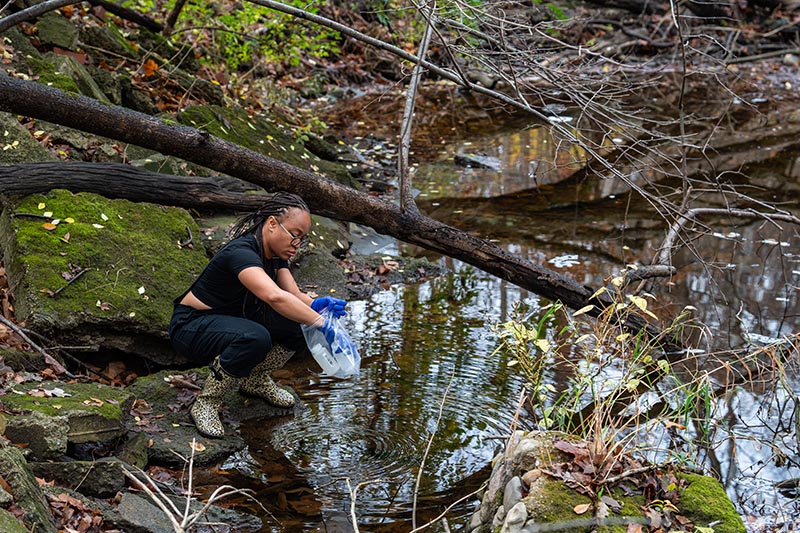
Peter says representing the agronomy department in the Graduate Student Senate and serving as a graduate student co-representative to the Purdue Ag Alumni Board of Directors gave her a wider perspective on what the College of Agriculture means to Indiana and the U.S. The multidisciplinary nature of her research allowed her to meet people across different fields as she presented at major conferences in the U.S. and Europe. She has published her research results and mentored undergraduates in the lab, noting that one of her mentees returned to Purdue as a graduate student.
Future plans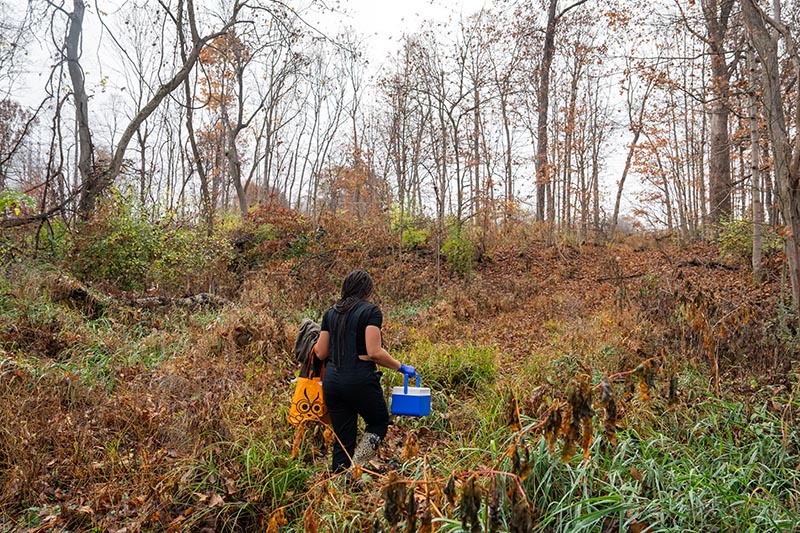
After completing her PhD this spring, Peter plans to seek a postdoc that will allow her to continue her work with PFAS and eventually, a faculty position. Away from the lab, she still enjoys gardening as well as running, drawing and painting. She also relaxes by baking pies: “It’s like chemistry,” she says.

